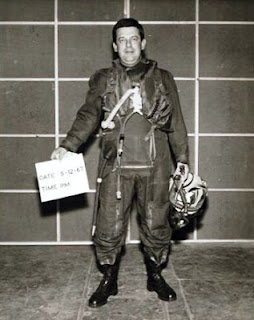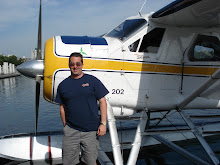Don P Thometz 1922- 2003
Don Thometz (centre) with student pilots
Don Thometz was an Army Air Corps instructor during World War II and a United Airlines DC-3 copilot in United’s early years. He flew nonscheduled cargo operations to Alaska and flights that supported the building of the Distant Early Warning (DEW) Line in the Arctic in the late 1940s and early 1950s. He finally landed a job as a test pilot for Boeing in the KC-97, B-47, B-52, and KC-135. When production of military air planes slowed down in the mid-1960s, he transferred to Seattle as a senior flight instructor in the B-707, B-720, B-727, B-737, and eventually, the B-747, instructing pilots around the world.
By the time her retired, he held airman certificates in 23 different countries.
By the time her retired, he held airman certificates in 23 different countries.












